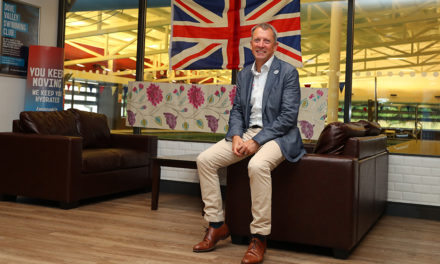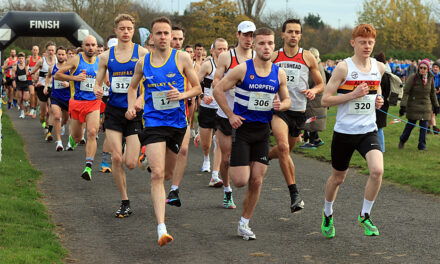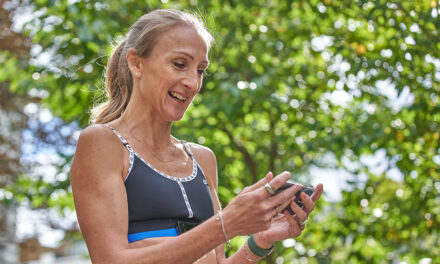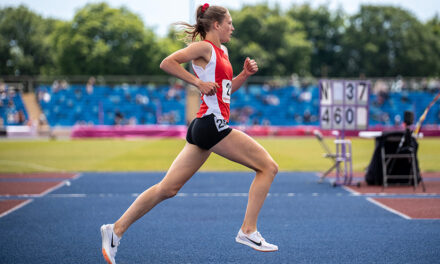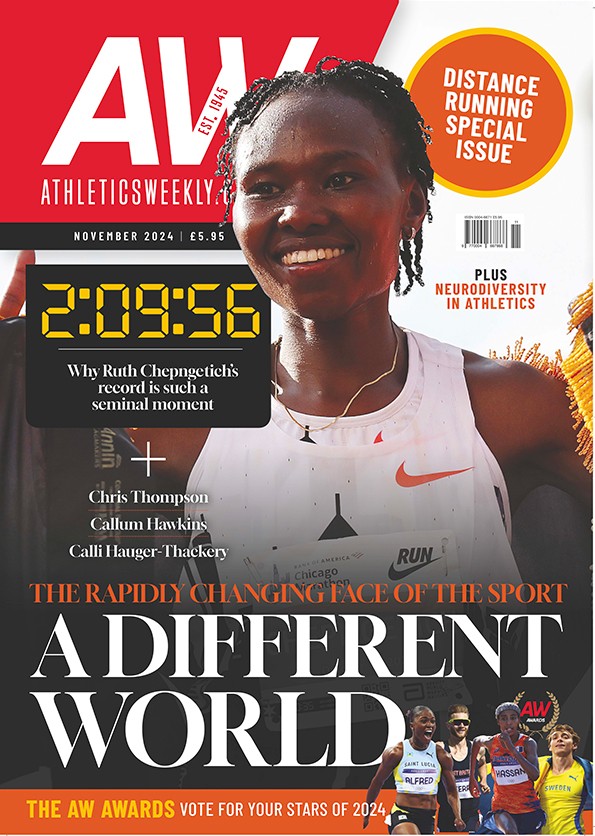After the agony of successive world silvers, Briton emulates Kelly Holmes with 800m victory in Paris
Gold at last. After three consecutive silver medals in global championships, Keely Hodgkinson took top spot on the Olympic podium with a command performance at the Stade de France on Monday night (August 5).
Twenty years on from Dame Kelly Holmes’ golden run in Athens, Great Britain has an 800m Olympic champion once again. Hodgkinson ran 1:56.72 to clinch the victory she so dearly wanted, looking in complete control until the moment she crossed the line and the emotion threatened to overwhelm her.
After an embrace with world champion and rival Mary Moraa – who tied badly in the closing stages and was beaten to silver by Tsige Duguma, the Ethiopian producing a PB of 1:57.15 move clear of the Kenyan’s 1:57.42 – Hodgkinson took a deep breath and the moment began to sank in. She whooped, skipped and leapt her way across the purple track with joy.
Unlike last year’s World Championships, there were to be no first-lap fireworks this time, but Hodgkinson had positioned herself at the head of the pack as she took the bell in 58.30, with Moraa and world indoor champion Duguma right with her.
This was the Briton’s chance, though. The expectations upon her shoulders were huge but she is a different athlete to the one who flew to a surprise silver medal in Tokyo three years ago.
There was World Championships agony in Oregon at coming second to Athing Mu in 2022, then hurt in Hungary as this time Moraa beat her to the punch last summer. It all served as motivation and, when her American foe failed to qualify for Paris, Hodgkinson shot into the role of favourite.
She played it well and, reaching 200m to go, hit the accelerator to make her bid for the glittering prize. Moraa tried to match her but, as they hit the final straight, Hodgkinson was already pulling away.

(Getty)
“That was absolutely incredible,” said Hodgkinson. “I’ve worked so hard over the last year and you could see how much it meant to me as I crossed the line. I can’t believe I’ve finally done it. It means so much to me. And to do it here, where better?. The audience was absolutely incredible, it felt like a home crowd to me. So I’m super happy.
“I wanted to be up near the front anyway, probably quicker after the first lap, but doing the semi-final and the final back to back everyone was tired. It’s tough. I trusted myself, I could feel Mary coming at me down the back straight. But I showed composure and I got to the line first this time.
“I had a cheeky look at the screen just to make sure but you can’t do anything until you cross that line. I’m now the Olympic champion for the next four years and nobody can take that away from me.
“I feel like I’ve really grown over the last couple of years and this year is the year I’ve really tried to make that step up. The other girls are incredible. I knew to cross that line first I had to go one better than I ever had. I’m just so pleased to do it today. The future is bright.”
Meanwhile, Gabby Thomas qualified fastest for the women’s 200m final, the Tokyo bronze medallist clocking 21.86 to make sure of her place in Tuesday evening’s showpiece. There were no qualifying issues, either, for newly crowned 100m Olympic champion Julien Alfred,
the St Lucian coming home in 21.98. Nigerian Favour Ofili also progressed in 22.05, as did American Brittany Brown (22.12).
After her fourth place in the 100m final Britain’s Daryll Neita continued her medal pursuit with 22.24 and her team-mate and 2019 world champion Dina Asher-Smith moved on from her disappointment in the short sprint, securing her spot with 22.31.
Bianca Williams clocked a season’s best of 22.58 to finish 10th overall, outside of the qualifying places.
The American duo of Kenny Bednarek (19.96) and Erriyon Knighton (19.99) led the way in the men’s 200m heats, with their compatriot and 100m champion Noah Lyles cruising through in 20.19. Britain’s Zharnel Hughes had withdrawn from the competition with the hamstring injury that had hampered his 100m ambitions.
» Subscribe to AW magazine here


